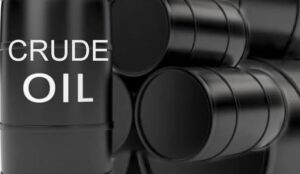The Federal Government announced that 67,657,559 barrels of crude oil were supplied to local refineries for processing from January to August 2025, according to the Nigerian Upstream Petroleum Regulatory Commission (NUPRC). Despite Nigeria’s rising crude production, this volume highlights persistent challenges in meeting domestic refiners’ needs.

Eniola Akinkuotu, NUPRC’s Head of Media and Strategic Communications, stated in Abuja on Sunday that the allocation adhered to the Petroleum Industry Act 2021 and the Domestic Crude Supply Obligation (DCSO) policy. The crude was delivered to modular and state-owned facilities, including Waltersmith, Aradel Energy, and Nigerian National Petroleum Company Limited refineries.

However, the supply fell significantly short of demand, meeting only 55% of the 123,480,500 barrels requested by refiners for the first half of 2025. The DCSO mandates upstream producers to prioritize local refiners before exporting, with penalties for non-compliance, aiming to reduce Nigeria’s reliance on imported petroleum products. Yet, actual deliveries have consistently lagged behind projections, with NUPRC estimating a need for 770,500 barrels daily (23.8 million monthly) for refineries like Port Harcourt, Warri, and Dangote.
Refinery owners have voiced concerns over limited access to local crude, alleging that producers favor international buyers paying in dollars, which disadvantages domestic refiners facing currency volatility. Eche Idoko, Publicity Secretary of the Crude Oil Refiners Association of Nigeria, criticized the DCSO’s implementation, particularly the “willing buyer, willing seller” pricing model, which he says undermines local refiners’ competitiveness against foreign buyers with access to hard currency.


Despite increased production of 1.63 million barrels per day in August, 82% of Nigeria’s crude was exported in Q1 2025, exacerbating local shortages. Industry analysts warn that this imbalance threatens Nigeria’s refining ambitions, which aim to curb the country’s significant petroleum import costs.


While NUPRC emphasizes its commitment to domestic refining with the 67 million barrels supplied, refiners argue that partial allocations hinder operational efficiency and investment returns. Stakeholders call for stronger enforcement, transparent pricing, and incentives to align producer and refiner interests and close the crude allocation gap.




